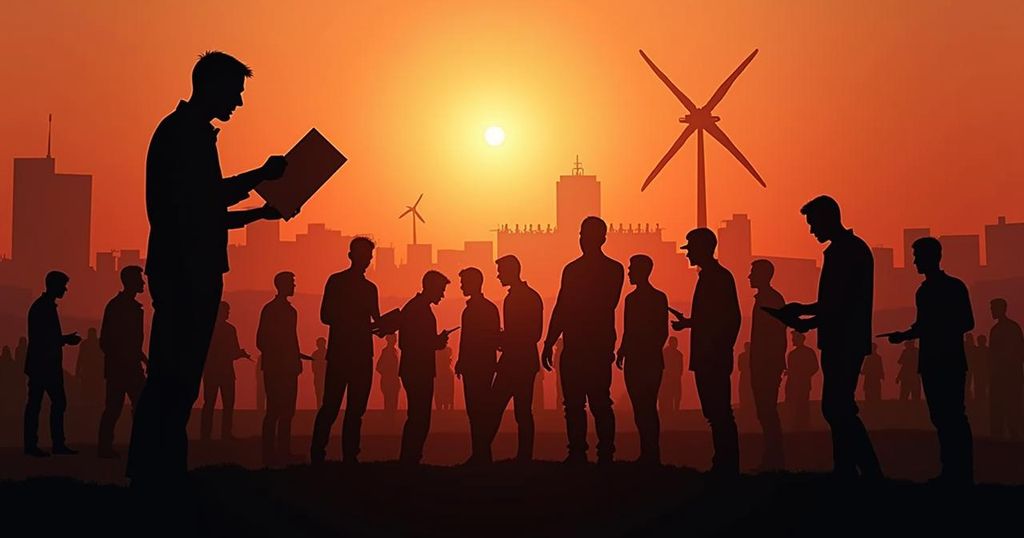Tunisia’s Presidential Election: A Foreboding Return to Autocracy

Tunisia’s presidential election on Sunday is largely seen as a mere formality, with incumbent Kais Saied expected to win amid a landscape of repression and virtually no viable opposition. Limited political alternatives, widespread apathy among potential voters, and ongoing economic challenges signal a troubling future for democracy in the country.
Tunisia conducted its presidential election on Sunday, with incumbent President Kais Saied expected to secure a further term amidst a climate of repression and limited opposition. This election features only two contenders: Zouhair Maghzaoui, a former lawmaker who endorsed Saied’s controversial power consolidation in 2021, and businessman Ayachi Zammel, who is currently incarcerated on charges related to his campaign. The election is widely regarded as more of a formality than a genuine democratic exercise, especially given that the electoral body, ISIE, disqualified 14 candidates and stifled dissent through crackdowns on opposition voices. This development marks a significant departure from Tunisia’s previous status as a beacon of hope for democracy in the Arab Spring, now seen as closing a chapter of that aspiration. Polling opened at 8:00 am and is scheduled to close by 6:00 pm, with preliminary results anticipated within a few days following the election. However, among the electorate, there is a palpable sense of apathy. Reports suggest that approximately 9.7 million Tunisians were eligible to vote, yet many express disenchantment with the political process, feeling that participation would be futile. This sentiment was voiced by a young Tunisian, saying, “We have nothing to do with politics” and indicating a collective disengagement from a system perceived as flawed. Since his rise to power in 2019, President Saied has made sweeping changes, including the rewriting of the constitution and extensive crackdowns on dissent. Human rights organizations, such as Human Rights Watch, have documented the detention of over 170 individuals on political grounds, signaling a significant regression in civil liberties. Prominent opposition figures like Rached Ghannouchi and Abir Moussi are among those currently imprisoned, further underscoring the lack of viable alternative leadership. As the political climate remains strained and economic issues persist, the atmosphere surrounding the election is marked by a lack of enthusiasm and hopes for change among voters, casting doubt on the future trajectory of Tunisian democracy.
Tunisia has undergone significant political changes following the Arab Spring uprisings, which originally promised a move toward democracy. However, the last few years have seen a troubling regression under President Kais Saied, who consolidated power through controversial means, including the suspension of parliament and the dismissal of judges. The political dynamics have been further complicated by economic challenges, which have led to widespread disenchantment among the populace. This election is crucial, as it could signify either a continued authoritarian drift or a potential turning point for renewed democratic efforts, albeit with little indication of change in leadership or policy direction due to the limited opposition.
The presidential election in Tunisia reflects a concerning trend of authoritarianism, characterized by a lack of credible opposition and widespread public disillusionment. As President Kais Saied prepares for what seems to be a secure re-election, the future of Tunisian democracy appears increasingly precarious. With significant portions of the electorate disillusioned and disengaged, the potential for democratic revival seems bleak unless significant changes occur within the political landscape.
Original Source: www.france24.com








